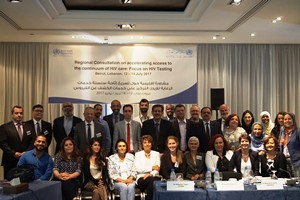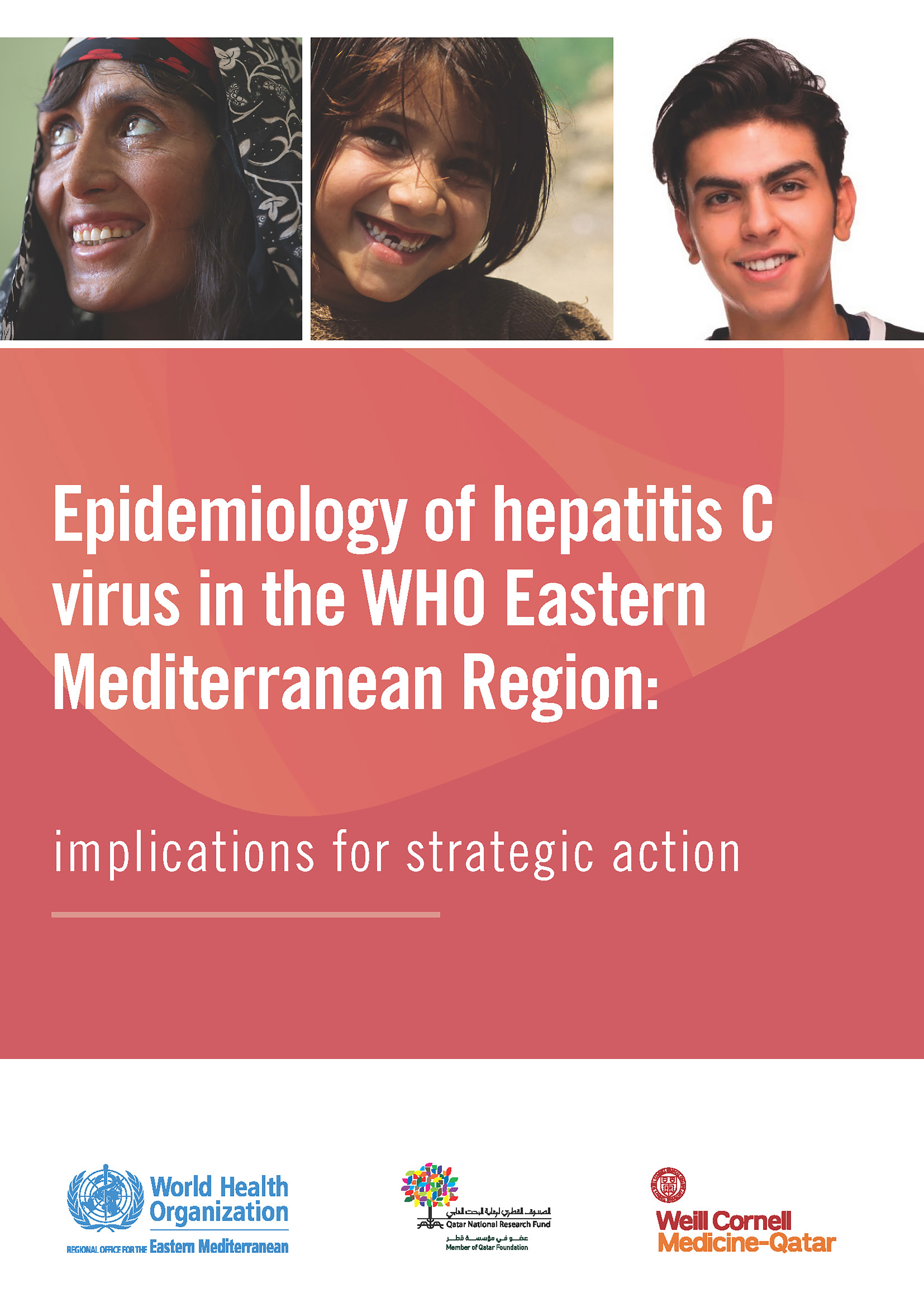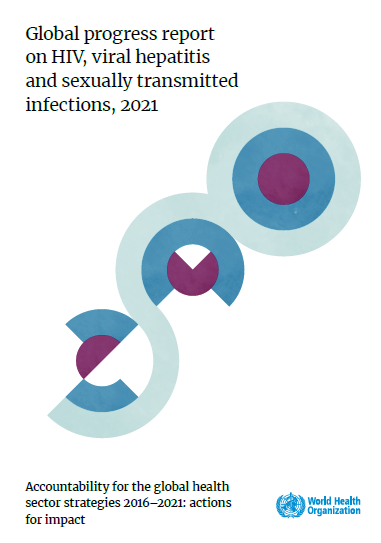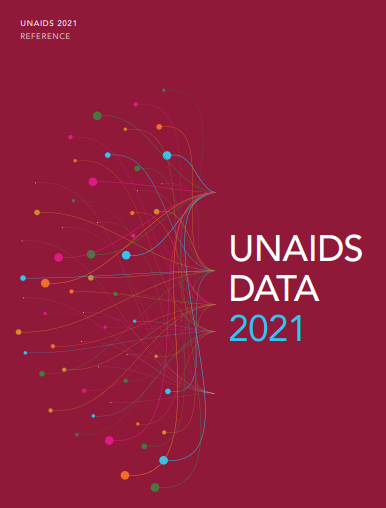 8 August 2017 – A group of national AIDS programme managers, civil society members and experts met at the Crowne Plaza Hotel, Beirut, from 12 to 14 July to discuss means to improve access to the continuum of HIV care services. The consultation focused on the biggest bottleneck in scaling up access to treatment; that is access to HIV testing services.
8 August 2017 – A group of national AIDS programme managers, civil society members and experts met at the Crowne Plaza Hotel, Beirut, from 12 to 14 July to discuss means to improve access to the continuum of HIV care services. The consultation focused on the biggest bottleneck in scaling up access to treatment; that is access to HIV testing services.
In his message, Dr Mahmoud Fikri, WHO Regional Director, emphasized the need to address the limited access to HIV testing in the Region. Approximately 3 in 4 people living with HIV (PLHIV) in the Region do not know that they are carrying the virus and therefore they and their partners and families cannot benefit from the needed HIV prevention, care and treatment services.
Read the Regional Director's message
Obviously, the strategies applied by countries for increasing the number of PLHIV who are diagnosed are suboptimal. Countries invest in large-scale testing of low-risk populations rather than focused testing of populations at higher probability of infection. Experience with diverse HIV testing approaches tailored to the needs of people at risk is increasing in the region, however adequate coverage of testing services is only exceptionally achieved.
Stigma and discrimination against PLHIV remain rampant in the Region. All efforts should be paid to reduce them and alleviate their consequences. However, while combatting stigma and discrimination life-saving HIV interventions need to be scaled up urgently.
WHO has put forward guidelines that are rooted in evidence, ethical and rights-based approaches. These guidelines provide a framework for scaling up HIV testing services applicable in the Region. New technologies like HIV self-testing and approaches to partner notification provide new opportunities to allow people to know their HIV status.
Participants at the consultation reviewed the existing and new WHO recommendations regarding HIV testing, including HIV self-testing and partner notification, as well as region-specific assessments of the acceptability of such approaches to the potential beneficiary.
The consultation concluded that more effort is needed for optimize the opportunities for accessing HIV testing services, particularly those population groups that were missed in the current response. The participants highlighted the role of civil society in stepping up advocacy through developing and implementing clear communication strategies. They also requested WHO support to support them in conceptualizing, implementing and monitoring HIV testing approaches and services at a scale sufficient to achieve the global targets.





 Épidémiologie du virus de l’hépatite C dans la Région OMS de la Méditerranée orientale : implications pour l’action stratégique
Épidémiologie du virus de l’hépatite C dans la Région OMS de la Méditerranée orientale : implications pour l’action stratégique VIH Analyse en cascade tester-traiter-fidéliser : guide et outils 2017 Deuxième édition
VIH Analyse en cascade tester-traiter-fidéliser : guide et outils 2017 Deuxième édition
 Rapport de situation mondiale sur le VIH, l’hépatite virale et les infections sexuellement transmissibles, 2021
Rapport de situation mondiale sur le VIH, l’hépatite virale et les infections sexuellement transmissibles, 2021